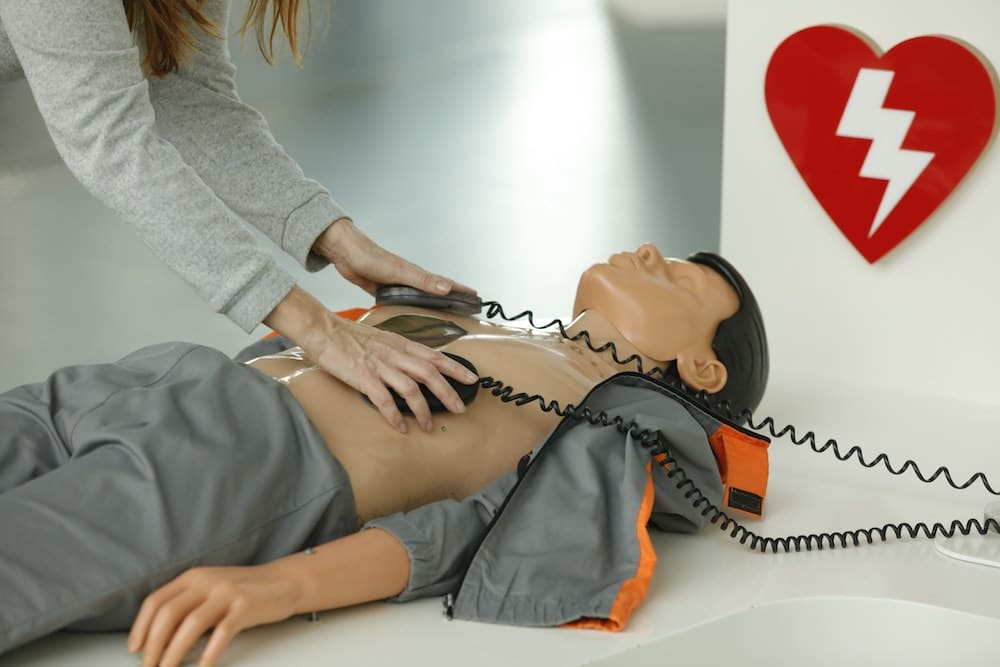How Can Customized Robotics Assist Children with Disabilities?

Customized robotics is an emerging trend in the technological arena with a revolutionary scope. It holds the potential to redefine the lives of individuals, especially those with disabilities. One demographic particularly benefiting from this advancement is children with disabilities. This article will provide an in-depth understanding of how customized robotics can assist these children, enriching their lives with new opportunities and possibilities.
The Need for Customized Robotics in Assisting Children with Disabilities
Children with disabilities often face unique challenges in their daily lives, which can create substantial barriers to their participation in activities and hinder their development. Customized robotics can provide innovative, personalized solutions to these challenges.
A lire aussi : What’s the Role of AI in Predicting UK Weather Patterns and Natural Disasters?
Children with disabilities often face various challenges that others often take for granted. These could range from mobility issues, difficulties in performing daily tasks, to intellectual limitations. The world may not always accommodate their needs, leading to a disconnect in their ability to interact and engage with their surroundings.
Customized robotics is a burgeoning field that deals with the design and manufacture of robots tailored to individual needs. These robots can perform a variety of tasks, from helping with mobility to assisting with learning, making them an invaluable tool for children with disabilities.
Cela peut vous intéresser : How Can Augmented Reality Apps Improve UK’s Retail Shopping Experience?
This technology offers the potential to revolutionize the lives of these children, allowing them not only to overcome their daily challenges but also to thrive. By providing personalized solutions, customized robotics can enable these children to participate more fully in their daily lives and reach their full potential.
Customized Robotics and Mobility Assistance
One of the significant challenges faced by children with physical disabilities is mobility. Customized robotics can play a crucial role in addressing this issue, providing these children with newfound freedom and independence.
Many children with physical disabilities rely on wheelchairs or other aids for mobility. However, these traditional aids often lack the flexibility to adapt to individual needs and can limit the child’s ability to explore their environment.
In contrast, customized robotic mobility aids can be designed to cater specifically to the child’s needs, enhancing their mobility capabilities. For example, they can be built to navigate different terrains, adjust speed or direction based on the user’s comfort, and even adapt to their growth and changing needs over time.
These robotic aids can also incorporate additional features like voice recognition, artificial intelligence, or sensory technology, providing a more intuitive and engaging experience for the child. This not only improves their mobility but also stimulates their cognitive development, contributing to their overall well-being.
Customized Robotics and Learning Enhancement
Customized robotics can also be an effective tool in enhancing the learning experience of children with disabilities, particularly those with learning or cognitive disabilities.
Traditional teaching methods often fail to meet the diverse learning needs of these children. They may struggle to keep up with their peers, leading to a gap in their learning progress. Customized robotic learning aids can provide a tailored, interactive learning experience, bridging this gap.
These robotic aids can be programmed to deliver personalized learning content, adapt to the child’s learning pace, and provide real-time feedback. They can also offer hands-on learning experiences, making the learning process more engaging and enjoyable for the child.
Furthermore, these robots can also help these children develop essential skills such as problem-solving, critical thinking, and communication. This can significantly enhance their learning outcomes and set them up for future success.
Social Integration Through Customized Robotics
Beyond physical assistance and learning enhancement, customized robotics can also contribute to the social integration of children with disabilities.
Children with disabilities often face social isolation due to their limited ability to interact with their peers or participate in social activities. This can impact their emotional development and self-esteem. Customized social robots can help mitigate this issue, fostering social interaction and integration.
These robots can be designed to facilitate conversation, recognize and respond to emotions, and even simulate social behavior. This can help these children develop their social skills, build relationships, and boost their confidence.
Moreover, the use of robotics can also create a sense of inclusivity, as it enables children with disabilities to participate in activities alongside their peers. This can promote empathy, understanding, and acceptance among all children, cultivating a more inclusive society.
The Future of Customized Robotics for Children with Disabilities
The field of customized robotics for children with disabilities is still in its infancy, with much potential for growth and development. As technology continues to advance, the possibilities for how these robots can assist children with disabilities are endless.
From enabling greater independence to enhancing learning outcomes and fostering social integration, customized robotics holds the promise of transforming the lives of children with disabilities. It is a tool that not only aids these children in overcoming their challenges but also empowers them to realize their full potential.
The future of customized robotics is bright, with the potential to revolutionize the lives of children with disabilities. With continued research and development, there is no limit to what these robots can achieve.
The Impact of Customized Robotics on Children’s Mental Health
Children with disabilities are at a higher risk of experiencing mental health issues, including anxiety and depression. The struggle with physical limitations or cognitive difficulties can often lead to feelings of frustration, isolation, and low self-esteem. Here, customized robotics can offer a fresh perspective, positively impacting these children’s mental health.
In a world where they might often feel different, the customized robotic aids can provide a sense of normality and belonging. As these robots are designed to cater to their specific needs, the children feel more understood and less alienated. Additionally, the increased independence and ability to engage in activities that were previously challenging or impossible can significantly boost their self-esteem.
Moreover, the interactive nature of these robots can stimulate the children’s minds, keeping them engaged and motivated. The robots can be programmed to recognize the child’s moods and respond accordingly, providing emotional support. This can significantly reduce feelings of anxiety and depression, contributing to their overall mental well-being.
The Moral and Ethical Considerations of Customized Robotics
While the potential benefits of customized robotics are immense, it’s also essential to consider the moral and ethical implications of this technology. The development and use of robots for children with disabilities raise questions about privacy, consent, and the potential for dependency.
As these robots collect and store information about the child’s behavior, habits, and preferences, concerns about data privacy and security arise. Appropriate measures need to be taken to protect this sensitive information and prevent misuse.
In terms of consent, it’s important to ensure that the child and their parents are fully aware of how the robot works, what information it collects, and how this information is used. They should have the right to opt out at any point.
Lastly, there’s the potential for dependency. While these robots can significantly improve the lives of children with disabilities, overreliance on them could limit the development of the child’s own skills and abilities. Finding a balance between the use of robots and promoting personal development is crucial.
Conclusion
Customized robotics offers a ray of hope for children with disabilities, promising a better, more accessible world. While the technology is still emerging, it has already demonstrated its potential to transform lives by revolutionizing mobility, learning, and social integration.
Beyond physical and cognitive assistance, these robots can positively impact the mental health of children with disabilities, providing emotional support and boosting self-esteem. However, it’s essential to consider the moral and ethical implications of this technology, ensuring privacy, consent, and balanced dependency.
As we move forward, it’s crucial to continue research and development in this field, driven by a deep understanding of the unique needs and challenges of children with disabilities. The goal should be to create not just robots, but companions that can enhance these children’s lives and empower them to reach their full potential. Ultimately, customized robotics can pave the way for a more inclusive and supportive world for all children.
